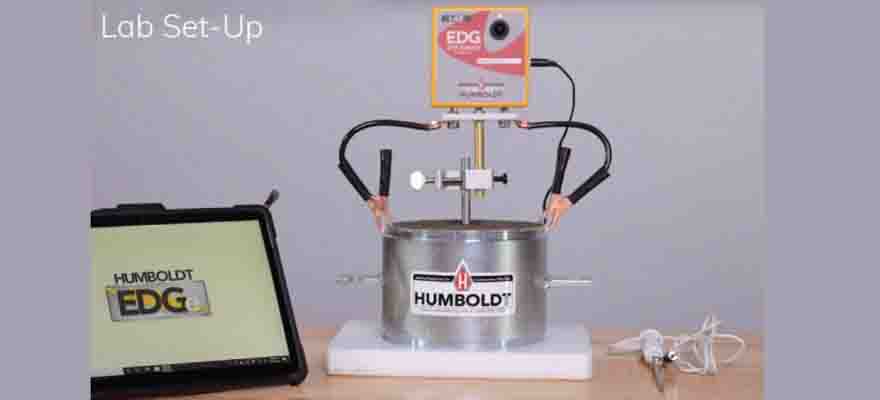Field Testing Equipment Reviews: What Users Are Saying in 2025
As infrastructure projects grow in complexity and quality standards continue to tighten, field testing equipment has become a cornerstone of modern engineering. From civil engineers and site supervisors to geotechnical consultants and lab technicians, professionals across industries are voicing their feedback on how today’s tools are performing in real-world conditions. In 2025, the market is more sophisticated than ever, offering everything from smart sensors and wireless data logging to AI-powered analytics.
In this article, we take a look at what users are saying about top field testing tools—from Rebound Hammers to Geotechnical Modeling Software—and explore why brands like Avantech are earning praise across the board.
1. Rebound Hammers: Simple, Reliable, and Still Relevant
Despite being one of the oldest tools in field testing, the rebound hammer remains a staple. Engineers appreciate its portability and simplicity, especially when a quick assessment of concrete compressive strength is needed.
“We’ve been using the Avantech Rebound Hammer for over a year on bridge decks. It’s lightweight, accurate, and doesn’t need batteries. Great for fast evaluations.”
— S. Ramesh, Site Supervisor, Mumbai Metro Project
2. Marshall Stability Equipment: Essential for Asphalt Mix Control
Highway and road construction teams frequently use Marshall Stability Equipment to evaluate asphalt mix quality. Users report high satisfaction with Avantech’s models, particularly due to ease of calibration and the option for automated compaction.
“Our quality control team runs 20+ Marshall tests a week. The automation in Avantech’s equipment reduces human error and speeds up our workflow.”
— Priya N., QC Engineer, National Highway Authority
3. GPR Survey Equipment: Going Deep with Confidence
Utility detection and underground scanning have come a long way thanks to advancements in GPR Survey equipment. Users love the clarity and depth range provided by modern GPR devices.
“The GPR system from Avantech detected multiple underground lines under a hospital site—accurate up to 2.5 meters. We avoided a costly mistake thanks to that scan.”
— Manoj T., Senior Geotechnical Consultant
4. Rock Testing Equipment: Rugged Tools for Harsh Terrain
For mining companies and tunnel engineers, reliable Rock Testing Equipment is non-negotiable. The feedback from 2025 shows a strong preference for tools that are both rugged and smart.
“We use their point load and triaxial test systems in the Himalayas. They’ve held up against dust, cold, and impact. The digital output saves time on reporting.”
— Jitender Singh, Tunnel Project Lead, BRO
5. Rapid Chloride Test: Fast, Consistent, and Trustworthy
In coastal and marine structures, chloride ingress can compromise concrete durability. The Rapid Chloride Test has emerged as a frontline tool for testing corrosion risk.
“Fast, easy to use, and consistent results every time. The Avantech unit helps us maintain QA/QC standards for port structures.”
— Nivedita Roy, Marine Structural Engineer
6. Vibration Monitoring Equipment: Smart Safety Monitoring
The rise of smart cities and megastructures has made Vibration Monitoring Equipment essential. These devices are now often integrated into real-time data dashboards.
“During metro tunneling near heritage buildings, the vibration monitors helped us stay within safe thresholds. Alerts were instant. We wouldn’t take a risk without them.”
— Arun D., Safety Officer, Metro Project
7. Blaine Air Permeability: Precision in Cement Testing
Users in cement and ready-mix concrete plants praise the Blaine Air Permeability apparatus for its accuracy in determining cement fineness.
“Once calibrated, it delivers flawless consistency. The digital display removes guesswork and helps with batch-to-batch quality control.”
— Ankush Mehta, Lab Manager, Cement Plant, Rajasthan
8. Rock Point Load Test: Compact Power for Geotechnical Insights
The Rock Point Load Test is getting great reviews for its portability and wireless features.
“We carry it to remote sites without needing a vehicle. The real-time wireless results are perfect for fast reporting and site classification.”
— Vivek Rana, Geotechnical Engineer, Oil & Gas Survey Team
9. Geotechnical Modeling Software: Seamless Data Integration
When field data flows into analysis software, speed and decision-making improve drastically. Avantech’s Geotechnical Modeling Software is lauded for its smooth integration and visual simulation capabilities.
“Whether it’s slope stability or settlement prediction, the software takes real test values and delivers insights fast. Game-changer for us.”
— Dr. S. Menon, Senior Consultant, Geostructures Pvt Ltd
10. W Beam Crash Barrier Testing Tools: Trusted for Road Safety
Finally, in the realm of highway safety, W Beam Crash Barrier Suppliers rely on testing tools to verify strength, placement accuracy, and compliance.
“Crash barrier testing used to be tedious. With Avantech’s integrated field tools, we can test installation strength and alignment on the spot.”
— Karan R., Road Infrastructure Inspector
Final Thoughts
The user reviews from 2025 reveal a clear trend: today’s field testing equipment must be accurate, durable, easy to use, and digitally connected. Brands like Avantech are emerging as industry favorites, not just for their comprehensive range of products, but also for their focus on user-centric design, calibration support, and tech integration.
Whether you’re scanning underground utilities with GPR, checking rock strength with a point load test, or analyzing concrete properties using a rebound hammer, user feedback proves that reliable field equipment isn’t a luxury—it’s a necessity. And with the right tools in hand, engineers are building safer, smarter, and more resilient infrastructure every day.







